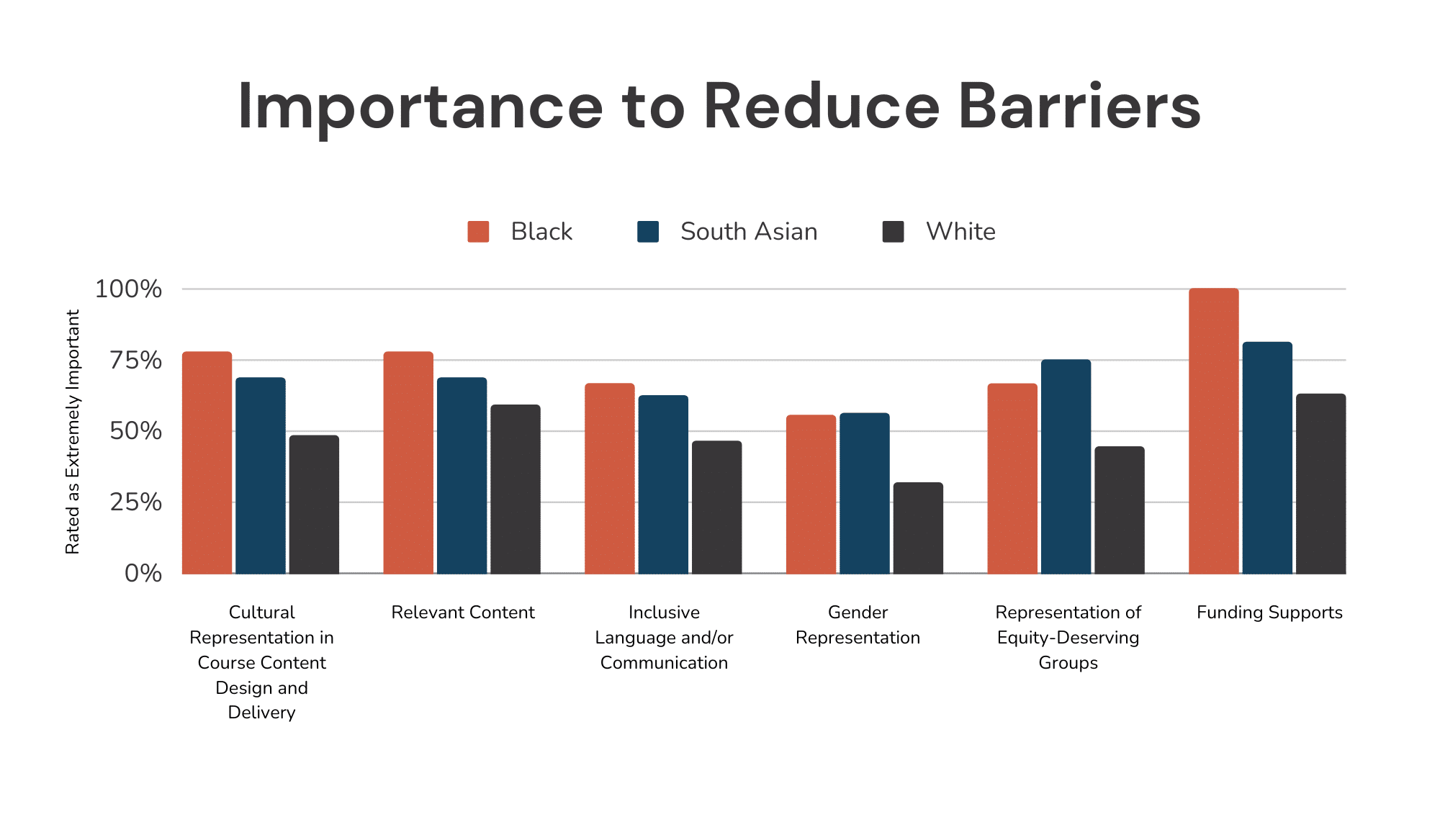The Upskilling for Canada’s Climate Transition research project is a collaboration between the Academy for Sustainable Innovation and the Resilience by Design Lab at Royal Roads University, in partnership with the Government of Canada’s Future Skills Centre. This project aims to identify the steps needed to upskill the workforce to support Canada’s climate transition.
We recognize that short-duration training can come in the form of courses, programs, and micro-credentials (a quality-assured, assessed record of focused learning achievement with stand-alone value that may also contribute to other credentials¹), but for the purposes of this blog and in alignment with the survey conducted, we will be referring to these as “short-duration courses.”
To test our initial research findings, a survey was conducted in May – June 2023. In this survey, 157 individuals shared their thoughts on short-duration courses, the competencies needed for climate action leadership, and possible pathways forward for a pan-Canadian rapid upskilling approach.
In our previous blog found here, we shared what we learned more broadly from the survey about what professionals are looking for from short-duration courses, such as duration, delivery mode, accreditation, and employer recognition.
In this blog, we focus on the various aspects that affect inclusion for equity-deserving groups within short-duration upskilling initiatives. In our survey, we asked the following question:
How important are the following considerations to ensure that equity-deserving groups are not faced with impediments or barriers when accessing short-duration courses (micro-learning, micro-credentials, or certificate programs)?
(1=Extremely important, 7=Not important at all):
- Appropriate cultural representation (in both the course content design and delivery)
- Relevant content
- Inclusive language and/or communication
- Adequate gender representation (in both the course content design and delivery)
- Representation of equity-deserving groups participating in and/or developing the available learning opportunities
- Sufficient funding supports and/or financially accessible costs
Further, we asked an open-ended question to allow respondents to add additional suggestions for how to reduce barriers to equity-deserving groups.
The results are compiled below:

Racialized respondents rank equity considerations as more important than White respondents.
Of the 157 respondents to the survey, 66% or 103 respondents to this survey identified as White, 11% or 16 respondents identified as South Asian – East Indian, Sri Lankan or Pakistani, and 5.7% or 9 respondents identified as Black. When data was disaggregated by race, racialized respondents ranked equity considerations as more important than White respondents, with Black respondents placing the most importance on equity considerations than any other group. These differences are notable despite the limited sample size of BIPOC respondents in this study. These differences do not emerge when data is disaggregated along other dimensions such as age or gender.
53.3% of respondents overall ranked cultural representation in course content design and delivery as extremely important. Differences emerge however, in the disaggregated data. 77.8% of Black respondents and 68.8% of South Asian respondents for example ranked cultural representation in course content design and delivery as extremely important, but only 48.6% of White respondents gave the same factor equal weight.
The same trend can be found when it comes to relevant content. 61.7% of respondents ranked relevant content as extremely important, but 77.8% of Black respondents and 68.8% of South Asian respondents ranked this factor as extremely important while only 59.2% of White respondents gave the same factor equal importance. Participants shared that relevant content is content that helps equity-deserving groups meet their academic and professional goals.
These differences stay consistent across equity considerations. For example, 50% of respondents ranked inclusive language and/or communication as extremely important, but 66.7% of Black respondents, 62.5% of South Asian respondents and 46.6% of White respondents ranked this factor as extremely important. Similarly, 36.7% of respondents as a whole ranked gender representation as extremely important, with 55.6% of Black respondents, 56.2% of South Asian respondents and 32.4% of White respondents ranked gender representation as extremely important.
Finally, 50% of respondents considered representation of equity deserving groups to be extremely important to ensure equity deserving groups are not faced with impediments or barriers when accessing short-duration courses. When data is disaggregated, 66.7% of Black respondents, 75% of South Asian respondents and 44.7% of White respondents ranked this factor as extremely important.
Funding Support is the most important equity consideration
Above all, the most important equity consideration for all groups was funding support, with 68% of all respondents ranking it as extremely important. When data was disaggregated, 100% of Black respondents, 81.3% of South Asian respondents and 63.1% of White respondents considered funding support to be extremely important.
When given the opportunity to share their feedback on equity considerations through open comments, cost was the most frequently mentioned theme. Many respondents recommended offering free courses to encourage participation, or offering specific support through bursaries, grants or discounted tuition to low income participants and equity-deserving groups to offset the cost of courses.
Inclusive Learning Environments are Key
In addition to funding support, respondents highlighted the importance of inclusive, accessible and co-created learning environments. Creating this kind of learning environment requires culturally responsive learning materials, individualized learner support and instructors who are equipped to teach in trauma-informed and anti-oppressive ways. Participants recommended centering Indigenous knowledge in courses, and dedicating 60% of course spaces for learners from equity-deserving groups. Developing courses in partnership with participants involves building relationships with equity-deserving groups before courses begin, and ensuring equity-deserving groups are meaningfully involved in course creation and delivery.
Accessibility is Created At Different Scales
Accessibility considerations include but are not limited to accessible technology that is compliant with national or provincial accessibility legislation. Rather, accessibility is created through interventions at different scales, such as flexibility in course duration and delivery formats to ensure courses are accessible to learners with caring responsibilities, learners from geographically remote communities and learners with limited time outside of the work day to devote to a short-duration course.
Translation and transcription of course material and lessons in languages beyond English and French was also identified as supports that enable learning environments that welcome and accommodate all learners.
Outreach and Low Barrier Applications Matter
Reducing and eliminating barriers to participation requires addressing how a learner signs up for a course. Participants recommended partnering with community leaders and stakeholders to do outreach through relevant channels tailored to specific equity-deserving groups. Doing outreach aimed at specific groups is an important way to ensure that a broad cross-section of people hear about learning opportunities.
Once participants are aware of a short-duration course, survey respondents recommended offering templates/language for participants to use when approaching employers for support, having few prerequisites for participation in a course, and offering support for learners with the administrative and bureaucratic elements of signing up for a short-duration course.
What we’ve learned from the preliminary results of this survey is that ensuring equity-deserving groups are not faced with impediments and barriers when accessing short-duration courses requires a range of nuanced and individualized interventions. Funding support is the most important intervention however.
The data collection for our Upskilling for Canada’s Climate Transition project is now complete, and we are working to summarize what we’ve learned overall. We invite you to sign up for our ASI newsletter to stay up-to-date on our progress and learn more about our results as they’re released!


